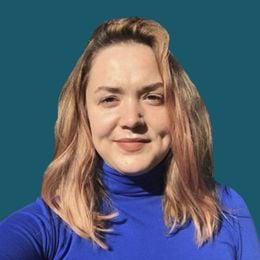'We Weren’t Expected to Live This Long'
Long-term survivors of HIV/AIDS reflect on what they've witnessed and endured
Editor’s note: As we near the end of 2020, we're highlighting some of our most memorable stories from this very challenging year. Here, editor Grace Birnstengel profiles four individuals growing older while HIV-positive. Their life stories are full of wisdom, hope and resilience that all of us can learn from. This story was made possible with support from The John A. Hartford Foundation.
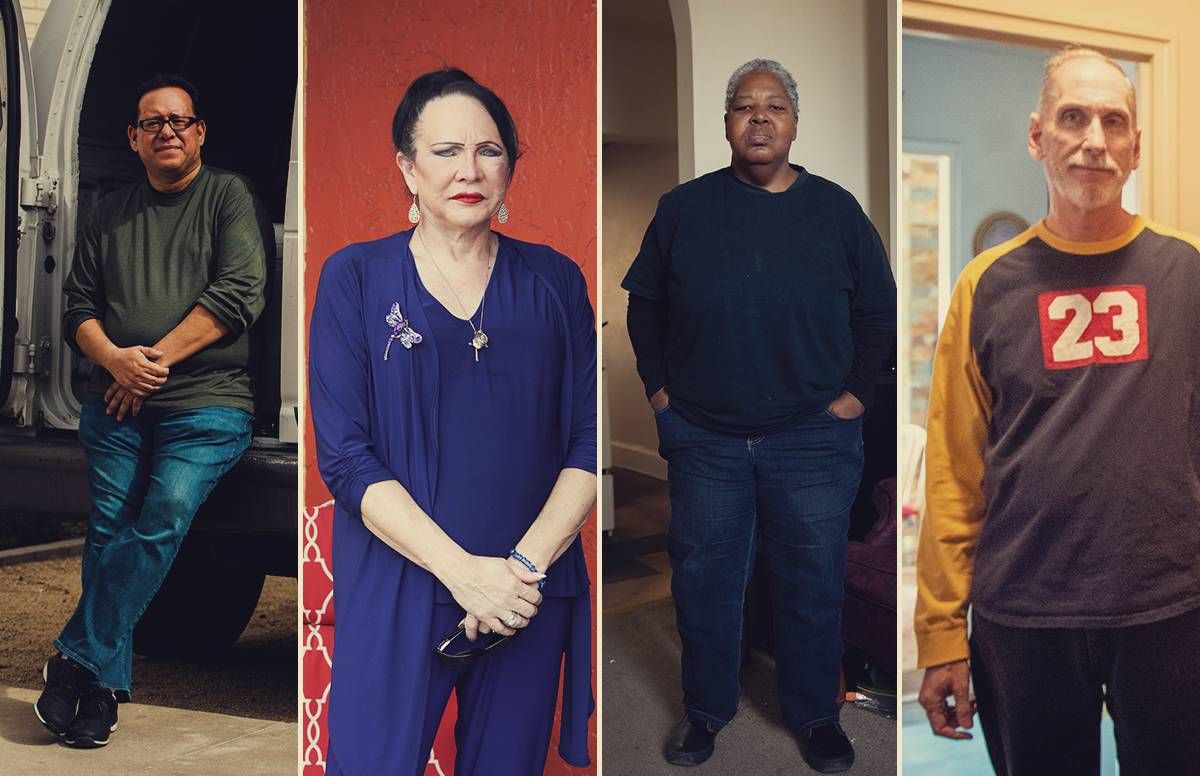
More than 500,000 people over 50 in the U.S. are growing older with the human immunodeficiency viruses (HIV) that, if untreated, cause acquired immunodeficiency syndrome, or AIDS.
While some have contracted HIV/AIDS in their later years (sparse sexual health promotion for older adults is often to blame), the bulk of these survivors were diagnosed decades ago, back in the throes of the AIDS epidemic of the 1980s and 1990s, when attitudes and treatment of the virus were inapt at best, inhumane at worst. Before the terminology we use now was around. Before effective medication emerged. Before an understanding of how HIV/AIDS is actually transmitted. Before life expectancy was more than a handful of years.
Long-term survivors of HIV/AIDS have prevailed through traumatizing combinations of adverse life events and are now aging into their 50s, 60s, 70s and beyond. And they are struggling: PTSD and other mental illness is essentially ubiquitous; housing and financial insecurity (when you're not expected to live, you don't plan for a future); health issues doctors can't explain and don't completely understand and debilitating community-wide isolation and loneliness.
But these are fighters, and they're not without hope. These conversations with them present four of their stories.
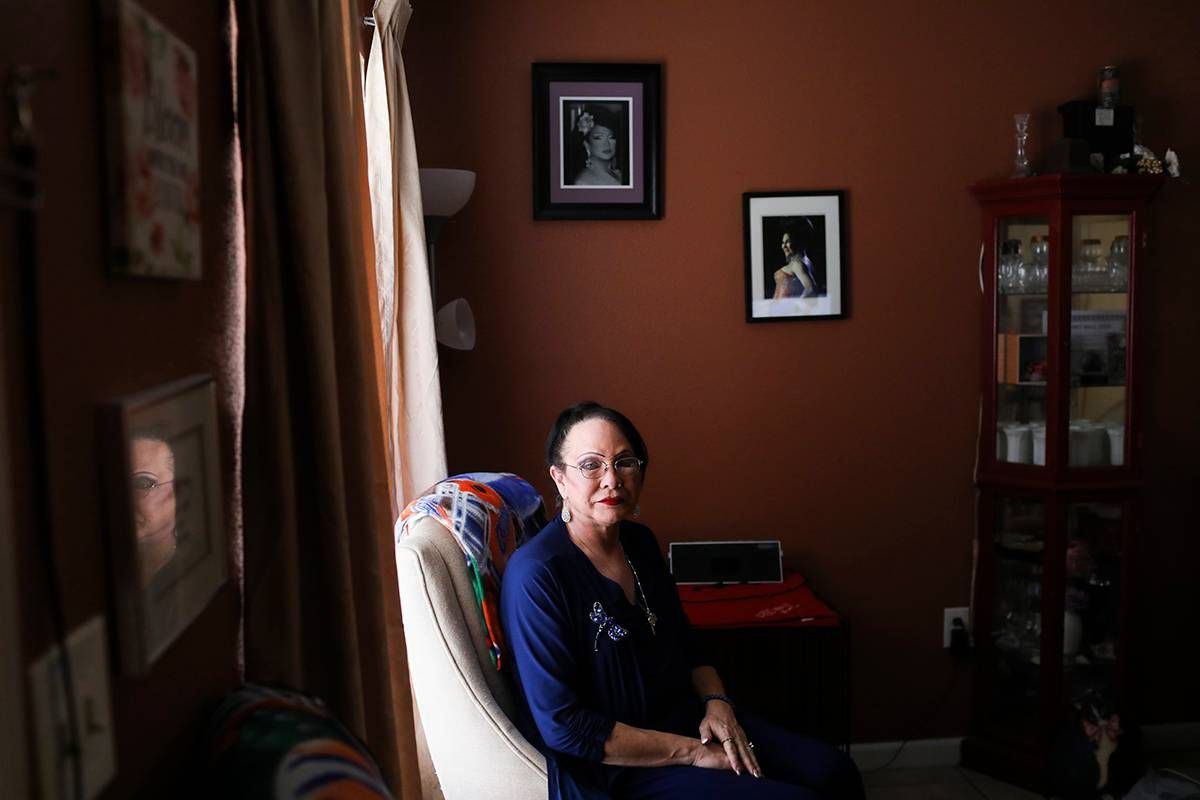
Name: Stephanie Stuart
Age: 54
Location: New Port Richey, Fla.
Diagnosed: June 1993
Grace Birnstengel: How has the world and the conversation around HIV changed — or not changed — since you were diagnosed?
Stephanie Stuart: I think the stigma is still there. I have met guys that expect me to be on PrEP [daily medicine that prevents HIV], expect me to know my status, but are not taking care of themselves. They're not on PrEP. They don't know their status. And when you question them: Why? It's, 'Oh, I don't need to be, I'm not at risk.' We're all at risk, darling. Everybody should know their status. People are worried about getting this deadly disease that's not a deadly disease anymore.
I think the conversation has quieted, and it needs to be louder. I feel like I'm standing on a street corner by myself with a sign that says, 'Hey, I still got HIV. I've still got it.' Everybody's driving by. Nobody wants to help. Nobody wants to talk about it. People are still being infected every day. Unfortunately, people are still dying from the disease, but a lot of us are living a lot longer, and it's not the death sentence that they gave me. It is building a complacency in our community. If your status is positive, then go to the doctor, start taking this medication, get your status to undetectable and then nobody can transfer the virus to anybody. Undetectable equals untransmittable.
What do you want people to understand about you and living with HIV?
I don't want them to forget us survivors, what we've been through. Because a lot of us carry a lot of survivor's guilt. When I was first diagnosed, that was the time period where someone would come in the bar and the word would get around that they've just been diagnosed and you really could pull out a calendar and mark a year and a half to two years and somewhere during that time they would be gone. And it happened a lot. I lost a lot of friends during that time.
I'd wanna remind people: Don't forget what we've been through. But then you also need to celebrate the fact that — look at the strides we've made with HIV treatment and how healthy a lot of us really are now. When I tested HIV positive. I came home… It's a wonder I didn't drive myself off the road that day coming home. I cried all the way home. I got home, I literally threw myself on the floor and had a temper tantrum and a meltdown. They had just told me I only had two years to live.
"What if the government is going to change their view on HIV and all of this goes away?"
What concerns you most about growing older with HIV?
I'm only fifty-four but because I've been on HIV medicine for so long, they say it ages your organs. So my organs could be about sixty-four. I feel my strength waning sometimes. I worry about not having enough food. I worry about not having a place to live at some point. What if the government is going to change their view on HIV and all of this goes away? But the one thing I worry about the most — and this probably comes from taking care of my [late] wife — and that is not being able to take care of myself, because I don't really have anybody I can rely on to help me. At this point, if I get sick, it may not be the HIV doing it. It might be a heart attack. It might be a stroke — something along those lines that can debilitate you. And then you've got that on top of having to remember to take the HIV meds.
I'm just kind of hoping it doesn't happen. I am really hoping that when my time comes, I'm on stage somewhere and I do the ultimate death drop and check out. Several years ago [in St. Petersburg, Fla.], there was a benefit and one of my sisters walked off stage into the dressing room and collapsed. And she was gone. They said her heart exploded. And I kept thinking, 'I'm going to miss you, but damn girl. That's the way to do it. Go the way you want to go, doing what you love to do.' If it turns out that way with me and I need somebody... I'm deeply spiritual, and I'm sure the Lord will provide and somebody will be there.
What message would you like to send to younger people living with HIV or people who are newly diagnosed?
There's no need to be afraid anymore. When I was diagnosed back then, it was a situation where someone would be diagnosed with HIV, and they'd go back two weeks later and then it's, 'Oh, you're not only HIV, you're full-blown AIDS' — barely having time to digest the fact that they've tested positive, to now they've got this awful disease. And those situations are almost obsolete nowadays.
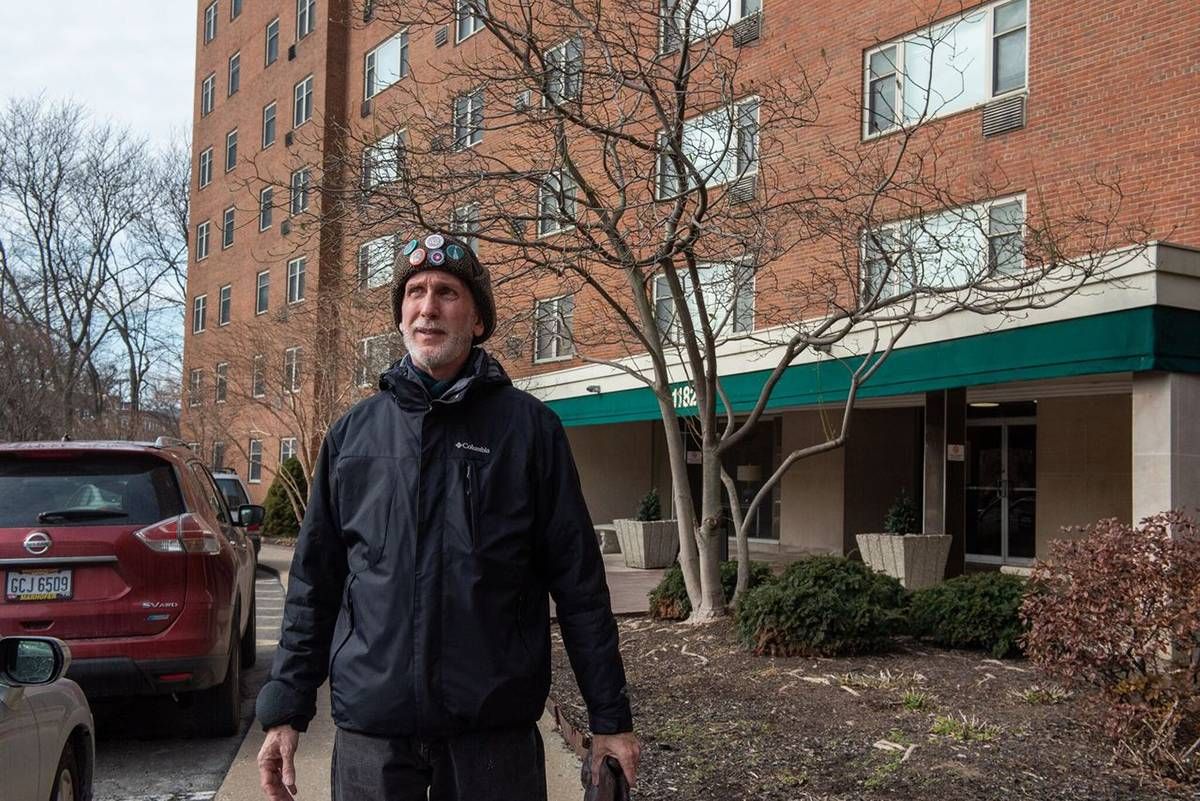
Name: Robert Toth
Age: 61
Location: Lakewood, Ohio
Diagnosed: October 1988
Grace Birnstengel: How has the world and the conversation around HIV changed — or not changed — since you were diagnosed?
Robert Toth: Well, it's gotten real confusing. I had an appointment with my HIV doctor, and I said, 'Can you settle the question? Am I a person living with AIDS or am I a person living with HIV?' She goes, 'Well, you're both, but you are a person living with AIDS.' The word AIDS needs to be used. If you were ever diagnosed with your T cells at two hundred or below, no matter where they are now, you are still a person living with AIDS. That was a surprise to me. I was like, 'That's really depressing, but thank you for clarifying that.' It's important to make that distinction because it's important to not erase all those people that died of AIDS. We're lucky that we live in a country that we have the Ryan White CARE Act that provides those medications free of charge to anyone who needs them. Thank you, Ryan White. God bless you. Jeanne White, his mother, she's an AIDS activist. God love her for doing what she's doing.
What do you want people to understand about you and living with HIV?
I've had the life experiences of a ninety-year-old and I'm only sixty-years-old. I've lost all my peers. My contemporaries are dead. I buried them, sprinkled their ashes, went to their memorials. So say hi to us. Invite us out to lunch. It can be a cheap place. I can afford lunch. I never expect anyone to pay. Let's go to a movie. It's nice to get out of my apartment. Know we're still here. Hug us. A hug changes the body chemistry.
"Maintain your friendships. It's a job that I failed to do, or I did, but they died anyway."
What concerns you most about growing older with HIV?
Well I was just in the hospital in the ER about three weeks ago, and there was nobody I could call. There was nobody who would, number one, answer the goddamn phone, and if they did, they wouldn't know what to do. So it's just this feeling of loneliness. It's not healthy. I have a cat, and cats are cats. Can I take a cat out for a walk? I can try, but it ain't gonna work.
What message would you like to send to younger people living with HIV or people who are newly diagnosed?
Number one, take a deep breath because you can live a full, average adult life because the medications do work if you take them properly. You can get married, which is something I didn't have when I was young and gay. I didn't have that future to envision — to be allowed to envision a future with a man, with a partner. Use it [the right to marry] if you find someone. Stop doing the drugs, period. If you can stop smoking cigarettes, do that, or at least smoke less. If you have a problem with alcohol, get into recovery. Don't be around the people who are still dabbling. Maintain your friendships. It's something you've got to work at. It's a job that I failed to do, or I did, but they died anyway. Undetectable is untransmittable. U equals U.
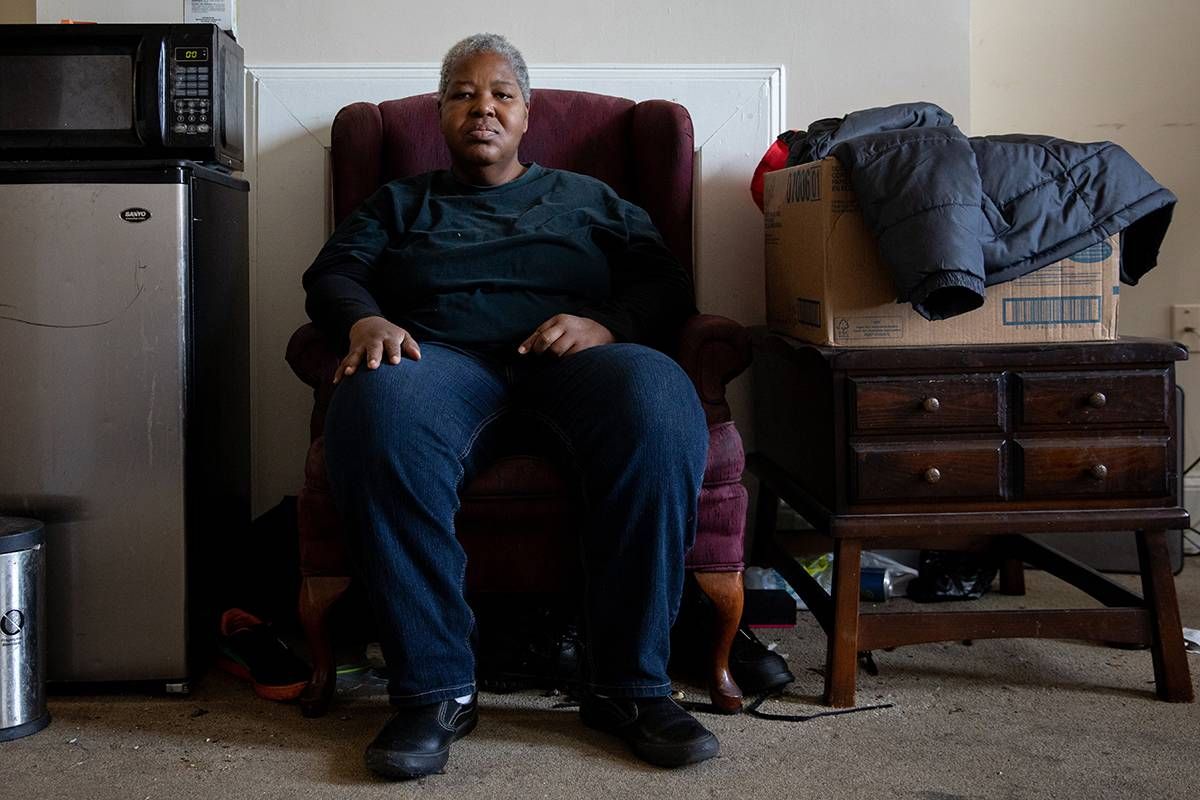
Name: Sharon Bosley
Age: 59
Location: Baltimore
Diagnosed: October 1988
Grace Birnstengel: How has the world and the conversation around HIV changed — or not changed — since you were diagnosed?
Sharon Bosley: It really hasn't changed 'cause stigma's still existing. People are still denied housing because of their status, losing jobs because of their status. The medicine has advanced. We can live longer now. It's a chronic illness like anything else, but the way we're treated is not good. Down in the south, like in Atlanta and South Carolina and North Carolina, their care down there sucks. And I think I was blessed that I was living in Baltimore when I found out because I think about living anywhere else — I wouldn't be living. You get great care here in Baltimore, but I had a friend, she was born with HIV because her parents were drug users, and she lived in [nearby] Howard County, and she had to move from Howard County to Baltimore city because Howard County didn't have the care or the support that she needed.
What do you want people to understand about you and living with HIV?
We're just like everybody else. It's just like people with cancer, diabetes or heart problems. You can't get it from looking at us or using the same bathrooms. There's still that mentality that you get it from hugging or kissing. As long as you take your medication, you can live well.
"I just pray and keep it pushing. That's all you can do."
What concerns you most about growing older with HIV?
It affects your body. It ages your body by ten years. I'm fifty-nine, but my organs — because of the virus and how it attacks your immune system — my organs are like sixty-nine. I don't know why. They don't know why it ages our organs faster, but it does. You might have disease a lot sooner than expected or mental problems a lot sooner. But I just pray and keep it pushing. That's all you can do. You can't change anything. When I go to support group, I try to encourage the newly-diagnosed people to take their medication as prescribed. It makes a difference. Take it all the time. You can't take no breaks.
What message would you like to send to younger people living with HIV or people who are newly diagnosed?
Take your medicine. Hook up with somebody that's a long-term survivor — like a buddy system — that can explain to you the importance of taking your medication and how to live well. 'Cause you can live well if you do what you're supposed to, just like any medication.
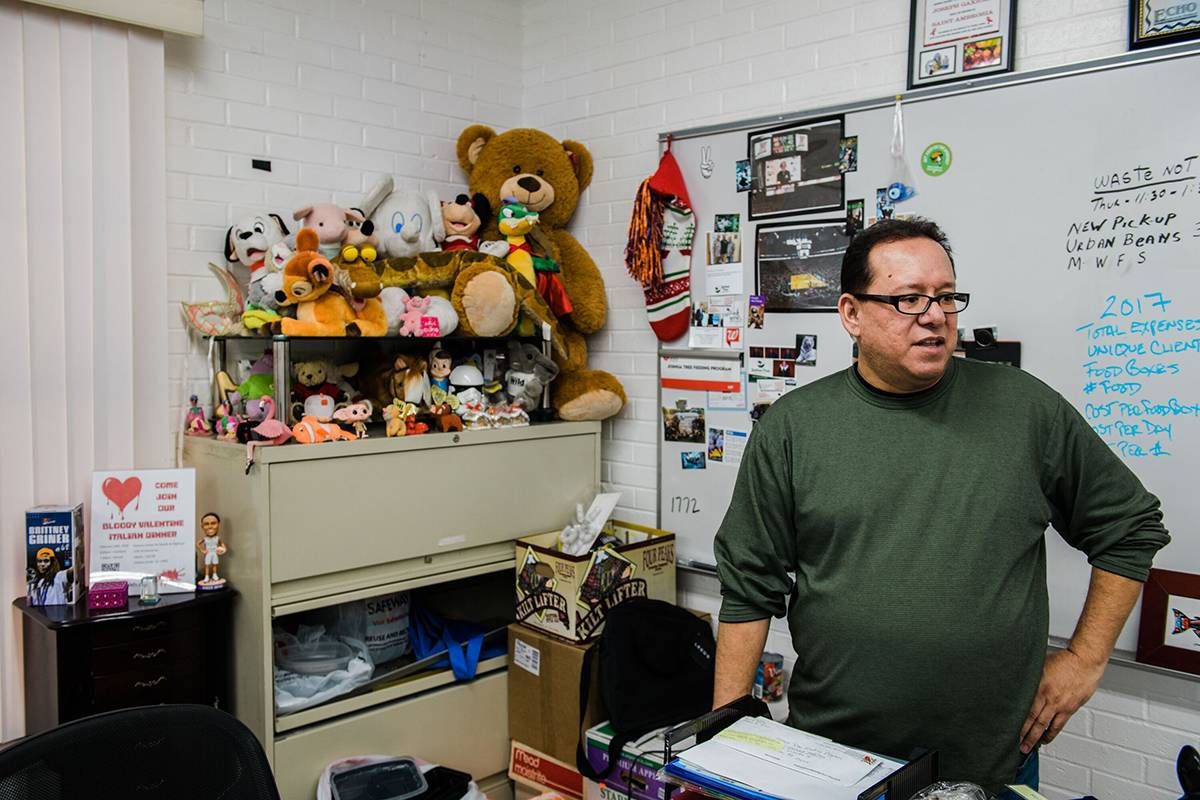
Name: Joseph Gaxiola
Age: 48
Location: Phoenix
Diagnosed: November 1999
Grace Birnstengel: How has the world and the conversation around HIV changed — or not changed — since you were diagnosed?
Joseph Gaxiola: The biggest thing I would say that changed from then to now was the fact that we're still here. Before that it would be like, 'Oh, I have this length of time.' I was given five years, so I was literally counting, 'I've got three more years to go. I got four more. I've got two. This is my last year.' Now it's like: I'm here. I'm still here. I'm fat. I'm grumpy. I'm talking. I'm functional.
Recently, I was taking an Uber here in Phoenix, and my Uber driver, he thought it was done. He thought there was a cure. He didn't realize that HIV was still around because it's not in the public eye, not in the news. I stupidly thought that the stigma was gone, but then it reared its ugly head when Charlie Sheen came out as being HIV, and all I heard was, 'Well, what do you expect — with his lifestyle?' The vice chair here [at the Joshua Tree Feeding Program], Peter Rodriguez, he always states the fact that when you tell people you have HIV, they look at you while going, 'Oh, what did you do?' But if you tell people you have cancer, it's like, 'Oh, I'm so sorry.'
What do you want people to understand about you and living with HIV?
Don't count me out. Just because I've had this for twenty years... I'm not going anywhere. The HIV community here in Phoenix or even Arizona, we're a tight-knit group. We take care of ourselves; we take care of our own, but we could always use more help.
"We're on the fast lane of getting old."
What concerns you most about growing older with HIV?
Those of us who are longtime survivors — there are other things popping up now because we weren't expected to live this long. My pills I take for HIV are basically poison 'cause it has to kill the virus that's living in me. So you don't know what else it's going to do to your other organs.
It's all the other things that are now creeping up to us, between the medications that we're taking as well as just the fact that we're getting old. We're on the fast lane of getting old. The fatigue, my liver, the colon cancer. My father went through colon cancer. He's twenty years older than I am. So I equate that the inside of my body is basically twenty years older than I am now. Things are happening to me health-wise, outside of HIV, that are happening to people basically twenty to twenty-five years older than I am. I wear progressives, and I'm going to have to go to trifocals.
What message would you like to send to younger people living with HIV or people who are newly diagnosed?
In San Diego, I was briefly a one-on-one counselor. I was part of a program. I would literally put twenty dollars on the desk in front of somebody who was newly diagnosed and said, 'If you follow your doctor's rules, take your medications, I guarantee you'll be undetectable in six months, and if you are not and you did all that, then you can have this twenty dollars.' I only had to give that up once just because the doctor couldn't figure out the right cocktail. Take your medications, listen to your doctor and listen to your body. And as long as you do what you're supposed to do, you'll be fine.
(This story is part of Still Here, Still Positive: A series on the first generation of Americans aging with HIV/AIDS, with support from The John A. Hartford Foundation.)
